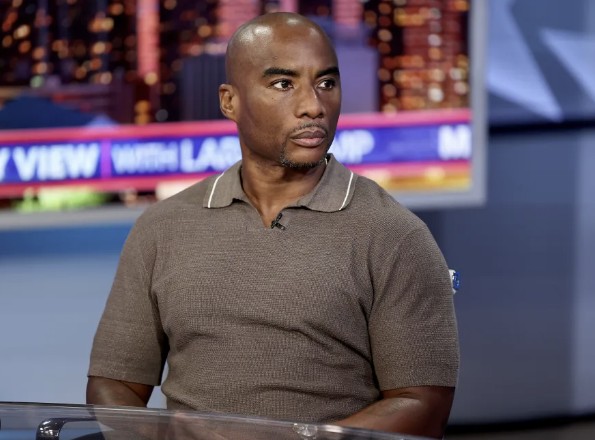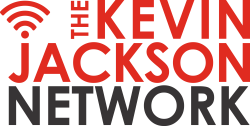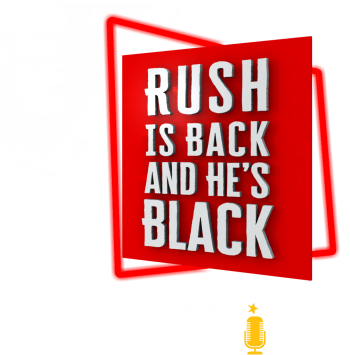
The Black Culture Clash
You probably missed the world-shaking clash of civilizations that went down at a radio studio recently. Ok, perhaps a bit of hyperbole, given it was just Dame Dash and Charlamagne (Tha Fraud) barking at each other on The Breakfast Club.
Still, let’s not downplay it. This wasn’t a simple radio spat. Oh no, this was Sparta. If Sparta had microphones, Instagram accounts, and a fashion branding deal with Jay-Z.
In case you don’t believe me, here’s the mainstream account of events:
Newsbreak reports that Dash went nuclear, accusing Charlamagne of being gay and essentially the mascot for emasculation in the Black community.
Charlamagne, never one to miss the chance to poke a wounded animal, sniped back that Dash was “broke” and moving like “an old Harlem auntie.” The term landed somewhere between insult and full-throttle emasculation, and let’s just say it did not go over smoothly.
But this was never about one insult. This was about two different archetypes of Black masculinity colliding on live radio, fighting not just for dignity but for dominance in the ever-shifting landscape of hip hop credibility meets metrosexual street fighting.
Dame Dash: The Reluctant Street Prophet
For context: Dame Dash is no lightweight. Once upon a time (let’s call it the late ’90s into early 2000s), Dash co-founded Roc-A-Fella Records, helped turn Jay-Z from hustler-turned-rapper into mogul, and functioned as hip hop’s loudest executive hype man. He embodied Harlem bravado and put it on the boards. Dash was the guy stomping around music video sets in his oversized jerseys and diamond chains, narrating the gospel of hustle harder. He represented the Black entrepreneurial dream before the tech bros colonized that phrase.
Cut to today, and Dash is more like the uncle at Thanksgiving who lectures everyone on the dangers of TikTok while sipping Hennessy neat. Social media clowns him for financial struggles, and he’s often made the butt of jokes for falling out with nearly every partner he ever had in business. But if there’s one thing Damon Dash hasn’t lost, it’s his mouth. And ol’ boy knows how to sling an insult when his male pride radar starts flashing.
Charlamagne Tha God: Metrosexual Gatekeeper of the Culture
Charlamagne Tha God, on the other hand, is the certified king of The Breakfast Club, a gatekeeper who revels in provocation while wearing brand-sponsored fashion lines like Paper Planes. He’s the prototype of the modern Black media personality: edgy enough to feel authentic, but polished enough to get those late-night TV slots and book deals.
Charlamagne doesn’t just interview rappers. He interrogates them, teases them, and sometimes makes them cry. He’s survived career slip-ups that would have ended lesser men: decades-old allegations, canceled culture mobs, and countless roasting sessions on Twitter. He’s carved a lane that appeals to woke progressivism on Mondays and Black capitalism on Tuesdays. He has his cake, eats it, and then critiques someone else’s fork.
Which makes Dash’s venom all the more fascinating.
The Trigger: Paper Planes and Unspoken Loyalty
Here’s where the comedy in tragedy lies: Dash’s true fury didn’t first ignite over Charlamagne’s voice, his media persona, or even the alleged “running from a fight” incident. No, Dash lost it over a shirt. Seriously—a T-shirt.
Charlamagne proudly rocked a Paper Planes tee on set, which sounds innocent until you realize that Paper Planes is the brainchild of Emory Jones, Jay-Z’s BFF and partner in crime-couture. To Dash, this was like Charlamagne showing up with a literal “Property of Jay-Z” sign stapled to his chest. In Dash’s view, this wasn’t just fashion—it was fandom. Or worse, favoritism. Thus, the accusations began: either Charlamagne is secretly in love with Jay-Z or he’s cashing a quiet check.
Imagine: a 52-year-old man having his most volcanic outburst on record over accusations of merch loyalty. That’s where we are in 2025.
Masculinity in a Blender
Let’s not sugarcoat this. What happened in that studio wasn’t just about Dash and Charlamagne. It was about the ongoing cultural battle over Black masculinity. Dash accused Charlamagne of exuding “female energy,” a phrase that sounds like something Andrew Tate would grunt out between tanner sessions. Translation: Charlamagne is too polished, too non-confrontational, and too cozy in progressive politics to be considered “real.”
This is where the hypocrisy drips like honey from a Harlem stoop in July. Dash himself has been criticized for being controlling, misogynistic, and incapable of handling changing times in hip hop—but here he is positioning himself as the final gatekeeper of real manhood. Meanwhile Charlamagne, who has built a career emasculating male rappers live on air, cried foul the moment Dash turned that same energy on him.
Dame Dash @duskopoppington goes straight for @cthagod and challenges his masculinity. ‘I just kinda think you’re gay 🏳️🌈’ 👀 Check out the full interview on YouTube! pic.twitter.com/qKwgbZtAEQ
— The Breakfast Club (@breakfastclubam) September 16, 2025
Welcome to the ouroboros of male fragility.
The Bigger Picture: From Civil Rights to Civil Clownery
To really appreciate the absurdity here, let’s zoom out. Sixty years ago, Black men were marching through Selma and fighting Jim Crow. Today, their cultural heirs are engaging in full-scale beef over the ownership of boutique streetwear lines and whether one man is broke or gay.
Of course, Black masculinity has always been contested, societally pressured, manipulated, and commodified. From the days of Blaxploitation films to the rise of hip hop as both art and corporate empire, “what it means to be a Black man” has functioned both as cultural lightning rod and marketing gimmick.
Dame Dash is from the last remnants of toughness and respect earned with fists and grudges. Thankfully for Charlamagne, he refused to succumb.
Charlamagne belongs to the neoliberal rebrand: progressive, image-conscious, selling vulnerability podcasts while simultaneously assassinating the Black sense of self on live radio.
Why This Matters (And Why It Doesn’t)
On its face, this clash means nothing. No legislation will be passed, no cultural movements will shift, no rockets launched. And yet, it does mean something. Because here’s the takeaway: this public meltdown says more about the insecurities baked into the Black male experience in America than any sociology textbook could. Two grown men, successful in different measures of wealth and influence, reduced to throwing age-old slurs and threats at each other, because Charlamagne could not stand the idea of being out-manned.
I suggest that first, Black Leftist culture has to stop confusing wealth with manhood, or confusing media trolling with courage. Maybe—and stay with me here—men could actually talk about generational shifts without trying to strangle each other with their own egos.
Final Thought: Street Respect Is a Costume
The Breakfast Club’s “culture clash” was essentially a courtroom where both men argued their case for real Black masculinity. Dash wore the costume of the firefighter from Harlem, battle-hardened and uncompromising. Charlamagne wore the Paper Planes-branded armor of the metrosexual gatekeeper, unshaken in his corporate cool. From my vantage point, Charlamagne looked ridiculous.
The real lesson? Street respect doesn’t live in fists, shirts, paychecks, or soundbites. It’s a costume—one that looks increasingly clownish when paraded on a morning show built to sell YouTube clips and viral outrage. A storm is brewing in the Black community.



